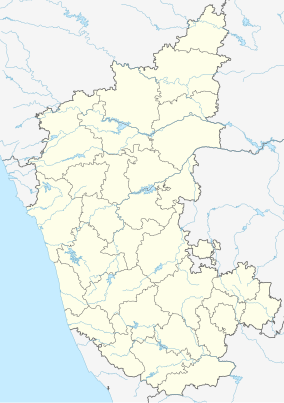Kaggaladu: Difference between revisions
Orrayawins (talk | contribs) |
mNo edit summary Tags: Reverted Visual edit Newcomer task Newcomer task: copyedit |
||
| Line 21: | Line 21: | ||
===Fauna=== |
===Fauna=== |
||
As the area lies in the plains of the [[Deccan Plateau]], bordering [[Andhra Pradesh]], the wildlife found here is typical of that of dry areas. [[WANC]] is compiling a detailed report of the [[flora]] and [[fauna]] found in the area. Several herds of [[blackbuck]] roam around Kaggaladu and surrounding villages. Some villagers claim unconfirmed sightings of the great [[Indian bustard]] in the area. |
As the area lies in the plains of the [[Deccan Plateau]], bordering [[Andhra Pradesh]], the wildlife found here is typical of that of dry areas. [[WANC]] is compiling a detailed report of the [[flora]] and [[fauna]] found in the area. Several herds of [[blackbuck]] roam around Kaggaladu and surrounding villages. Some [[Villagers (band)|villagers]] claim unconfirmed sightings of the great [[Indian bustard]] in the area. |
||
==Bird Sanctuary== |
==Bird Sanctuary== |
||
Revision as of 11:46, 31 October 2023
This article's tone or style may not reflect the encyclopedic tone used on Wikipedia. (March 2021) |
| Kaggaladu | |
|---|---|
| Location | Karnataka, India |
| Nearest city | Tumkuru |
| Coordinates | 13°49′0″N 76°51′0″E / 13.81667°N 76.85000°E |
| Established | 1999 |
| Governing body | Gram Panchayat, Karnataka Forest Department |
Kaggaladu is a village in the Sira Taluk of Tumkur district in the south of Karnataka, India. It is located, 9km to the north-west of Sira, a town on the Sira-Changavara Main Road. Since 1999, Kaggaladu village trees have been a breeding ground and haven for painted storks and grey herons. The heronry was first made known to the outside world in 1999 by Wildlife Aware Nature Club, an NGO based in Tumkur.[1]
History of the Park
Local residents report that grey herons have been nesting on a single tamarind tree in this area since 1993. The population of these birds increased in 1996 after poachers disturbed a tree in nearby Muddenahalli, resulting in the death of some birds. The villagers are committed to conserving these birds by refraining from harvesting tamarind from both privately owned trees and those belonging to the government. Some villagers are motivated by the birds' aesthetic value, while others consider them symbols of prosperity, which drives their protection efforts.
Natural History of the heronry
Fauna
As the area lies in the plains of the Deccan Plateau, bordering Andhra Pradesh, the wildlife found here is typical of that of dry areas. WANC is compiling a detailed report of the flora and fauna found in the area. Several herds of blackbuck roam around Kaggaladu and surrounding villages. Some villagers claim unconfirmed sightings of the great Indian bustard in the area.
Bird Sanctuary
The birds usually stay in the Kaggaladu Bird Sanctuary for about six months, arriving in February in groups for the nesting season.[2] By the end of August, the migratory birds depart.
Kaggaladu is said to be the second largest painted storks sanctuary in South India, after the Kokrebellur sanctuary in Mandya district, Karnataka.[2] It has been observed that many birds of foreign origin also migrate to Kaggaladu during the nesting season.
The tamarind trees have been maintained exclusively for birds shelter and nestling. The villagers of Kaggaladu are very much attached to these migrating birds.[2]
References
- ^ IndiaBirds.com - HotSpots Archived 2007-09-27 at the Wayback Machine
- ^ a b c "Kaggaladu Bird Sanctuary | District Tumkur, Government of Karnataka | India". Retrieved 27 July 2023.
- Breeding colony of storks found in Karnataka - News story from Indian Express, Bangalore, Monday, 22 March 1999
- Large nesting colony of Painted storks identified near Sira (Karnataka) - News Letter for Birdwatchers Mar-Apr.1999, Vol.39, No:2 and Myforest (Quarterly Journal of Karnataka Forest Department) March 1999

